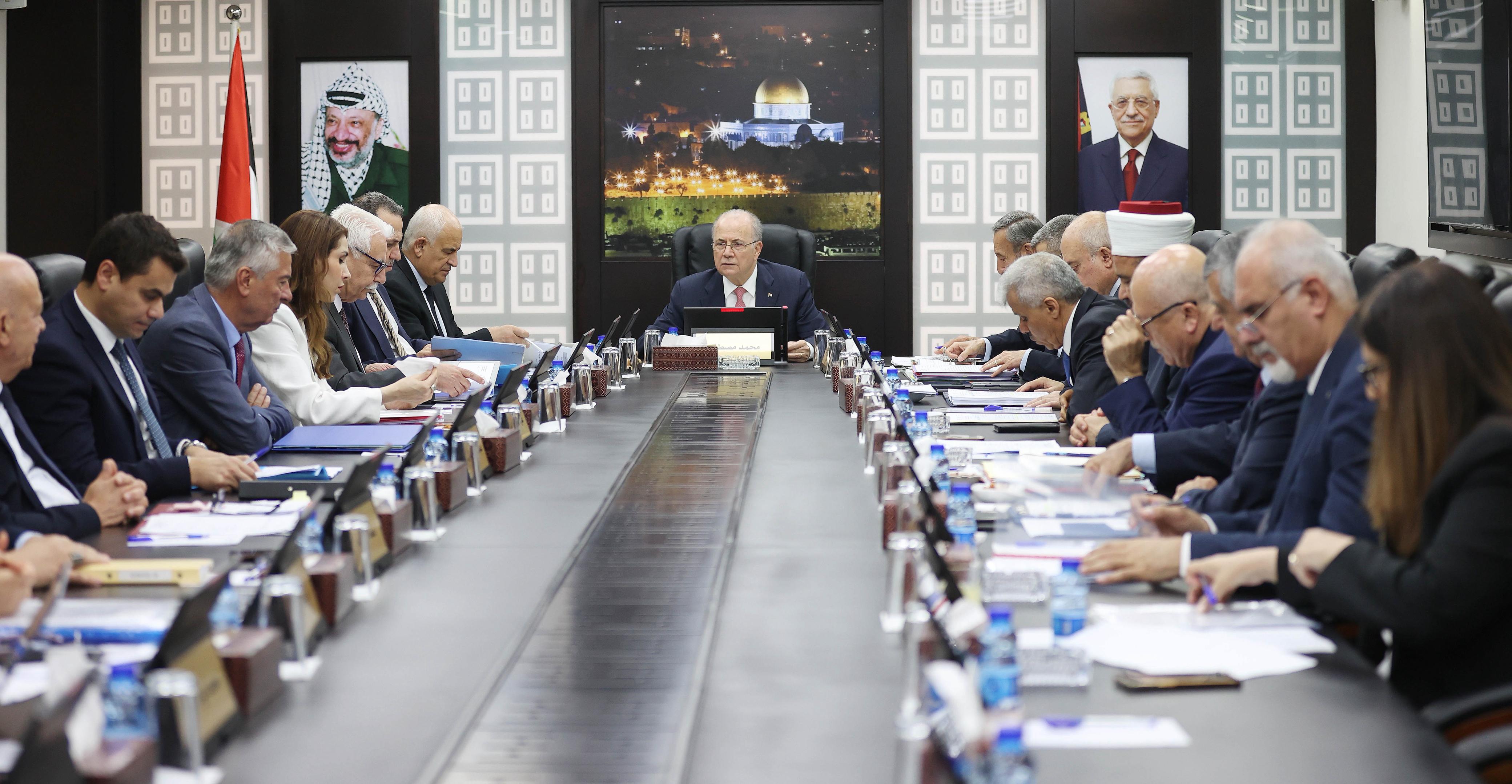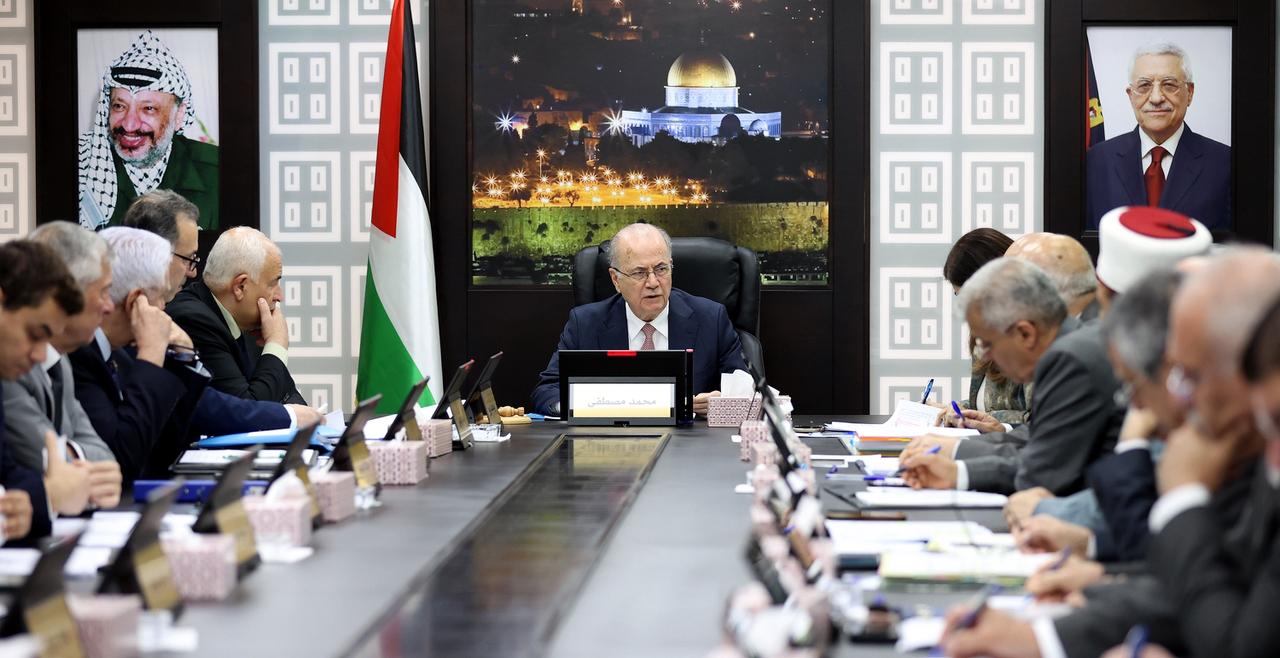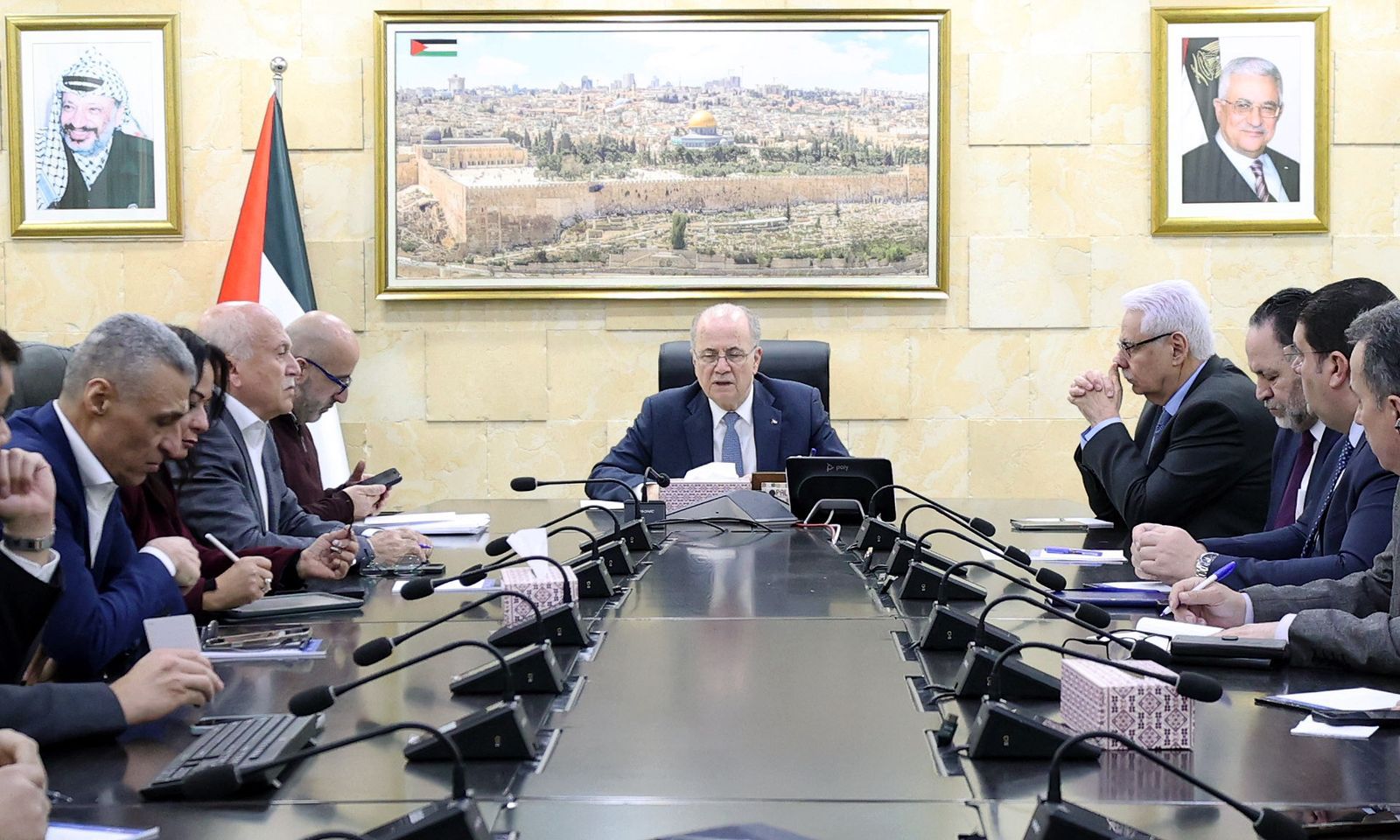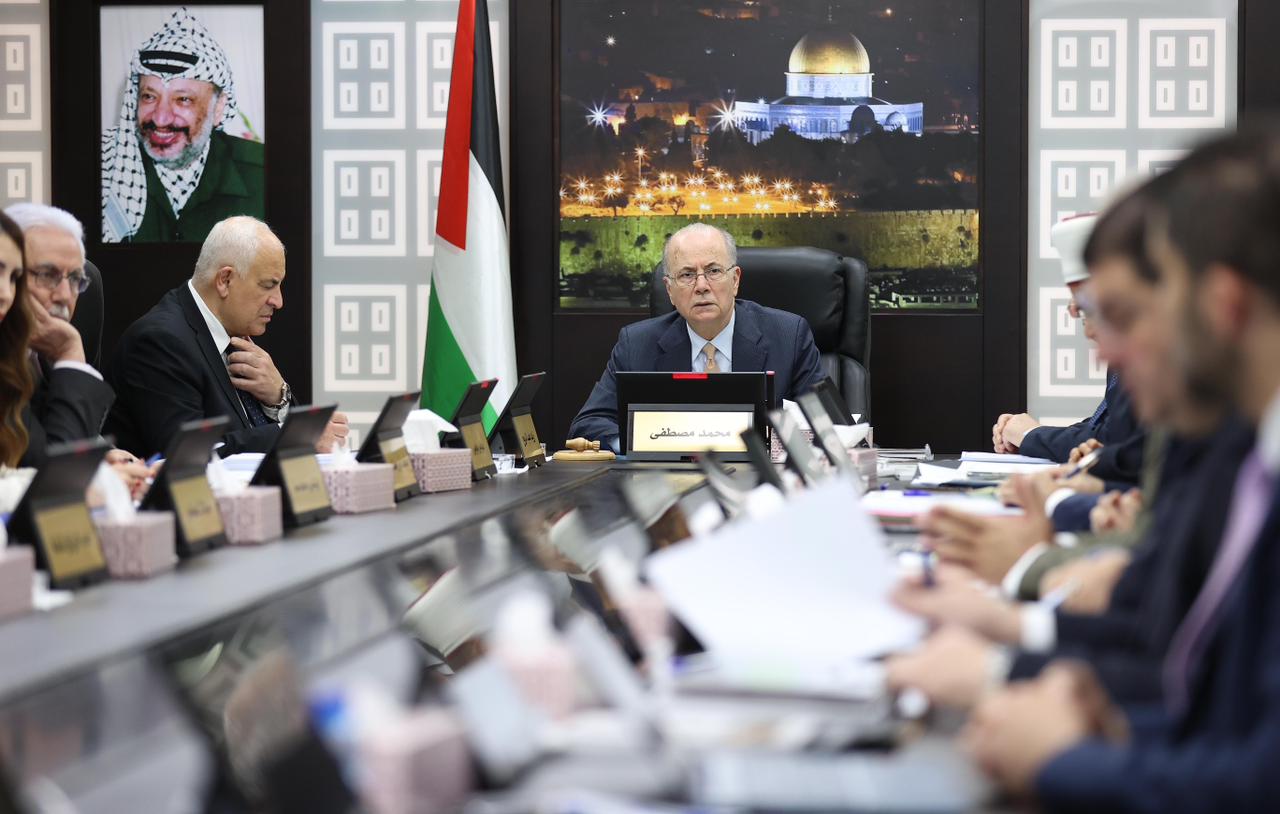RAMALLAH, June 24, 2025 (WAFA) - During its weekly session held on Tuesday, the Palestinian Cabinet discussed ongoing regional and international efforts aimed at halting the Israeli occupation’s genocidal war against the Palestinian people in the Gaza Strip and the West Bank, including Jerusalem.
The Cabinet emphasized that any declaration of a ceasefire must lead to tangible and just outcomes—chief among them, a complete cessation of Israeli aggression and the immediate and unhindered entry of humanitarian aid into Gaza, in a manner that safeguards the lives and dignity of our people there.
Prime Minister Mohammad Mustafa reaffirmed the Government’s continued efforts to mobilize financial resources across four key tracks: advancing the European support program, engaging with Arab countries to resume financial assistance and activate the financial safety package, working to release Palestinian funds illegally withheld by the Israeli occupation, and enhancing internal fiscal performance through spending rationalization, accumulated debt reduction, and combating tax evasion.
The Prime Minister also highlighted progress made under the National Program for Development and Reform (NP4DAR), including a portfolio of development projects submitted to key international donors—most notably the Kingdom of Saudi Arabia. These projects focus on strategic sectors such as the digital economy, renewable energy, and social protection for low-income families.
In addition, the Cabinet approved the 2025–2027 Strategic Plan of the Palestinian Energy and Natural Resources Authority. The plan prioritizes diversifying energy sources, expanding domestic natural resources production, promoting investment in clean energy, and improving energy efficiency through appropriate legal frameworks.
In parallel, the Cabinet endorsed a plan submitted by the General Commission of Petroleum to establish additional fuel storage facilities in cooperation with the private sector. These facilities, to be distributed across several governorates, aim to strengthen national fuel reserves and enhance emergency and crisis response preparedness. A centralized tender will be launched for the project’s implementation.
In this context, the Cabinet expressed gratitude to all parties that contributed to easing the recent fuel crisis, including the Petroleum Commission, Civil Affairs, Security Services, governors, the private sector, and all relevant stakeholders. It also called for lessons to be learned to improve the quality of procedures and services provided to our people. It also called for a comprehensive evaluation of the crisis to enhance the quality and resilience of essential services.
Finally, the Cabinet submitted the Investment Promotion Law to President Mahmoud Abbas for approval. This law is designed to attract foreign and domestic investment by fostering a favorable legal and administrative environment, particularly in high-impact sectors such as industry, agriculture, energy, digitization, and tourism.
T.R.












